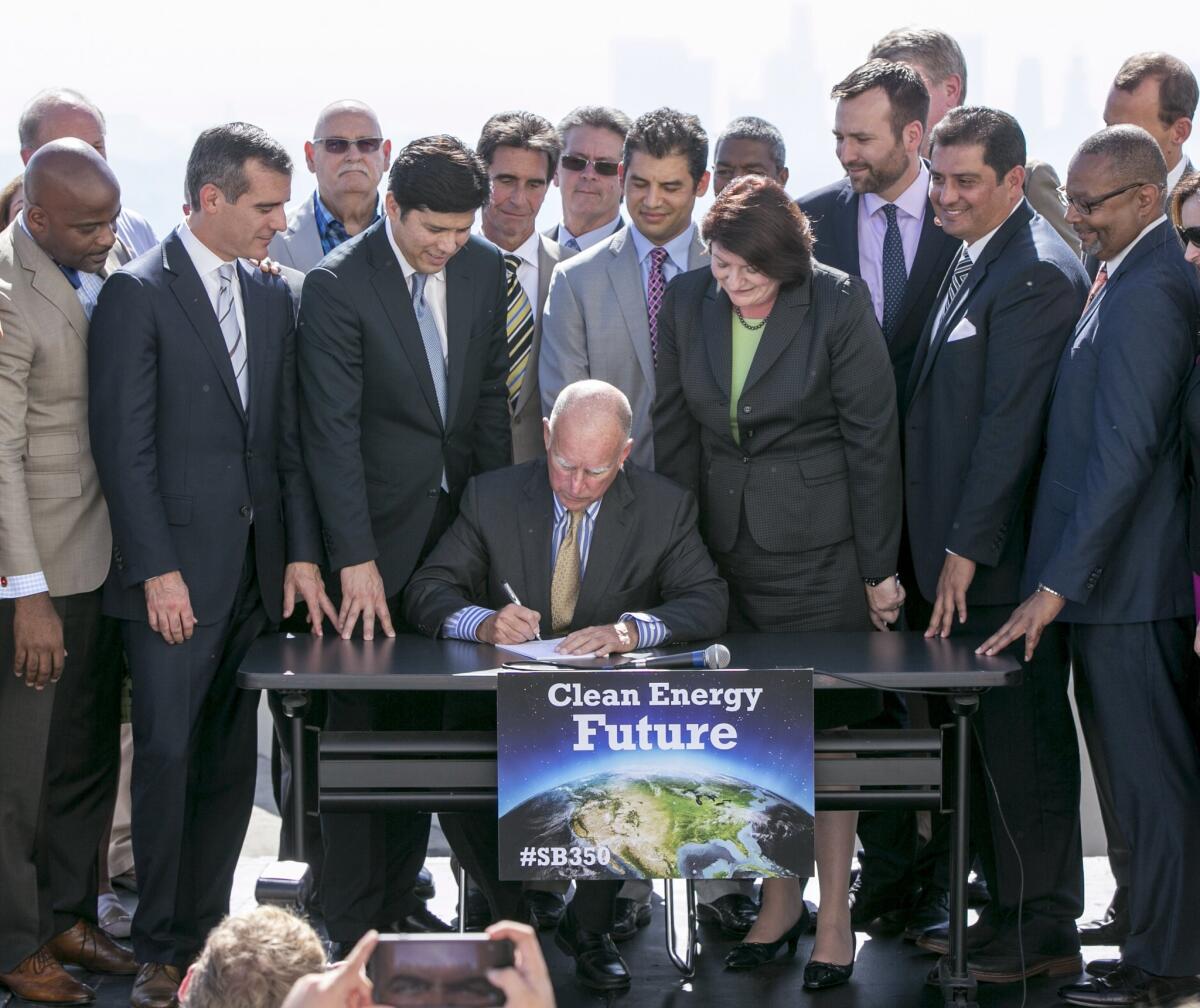Gov. Brown signs bill adding fresh troops to California’s climate fight

Gov. Jerry Brown signs climate-related legislation on Wednesday in Los Angeles. He signed additional environmental measures into law Thursday.
Reporting from Sacramento — The California Air Resources Board will gain two additional members to represent communities suffering from pollution, a victory for advocates and lawmakers who have sought a bigger voice in the state’s environmental policies.
Gov. Jerry Brown signed legislation on Thursday to expand the board, a regulatory agency that plays a leading role in the state’s battle against smog and climate change.
“Approximately 8 million Californians live in areas that are considered to be highly impacted by environmental problems,” said a statement from the bill’s author, Assembly Speaker Toni Atkins (D-San Diego). “They need to be heard.”
Although the current 12-member board is appointed by the governor, the two new members will be selected by legislative leaders.
Brown has previously been skeptical of giving lawmakers more authority over the Air Resources Board; protecting the board’s autonomy was a priority of his during last month’s debate over climate change legislation.
And on Wednesday, when he signed a bill to increase California’s reliance on renewable energy and raise efficiency standards, Brown joked that, “I love the Legislature but I don’t want to entrust you with too much power.”
The governor’s office said the legislation expanding the Air Resources Board, AB 1288, will ensure the agency “is more representative of the state’s diversity and those most impacted by pollution.”
Brown signed other climate-related legislation on Thursday, including AB 693 from Assemblywoman Susan Talamantes Eggman (D-Stockton), which creates a $100-million program for financial incentives to install solar panels at affordable apartment buildings.
Making low-income, multifamily housing more energy efficient has been a challenge in California’s environmental efforts, according to state officials.
Another bill signed by the governor, AB 1059 by Eduardo Garcia (D-Coachella), requires the state to improve its standards for measuring health effects of air pollution, water pollution and toxic sites in communities near the California-Mexico border.
Under the law, other issues that will be considered include vehicle emissions at border crossings and water quality for rivers and streams that cross the border.
Follow @chrismegerian for more updates from Sacramento.
For more political coverage, go to www.latimes.com/politics.
More to Read
Sign up for Essential California
The most important California stories and recommendations in your inbox every morning.
You may occasionally receive promotional content from the Los Angeles Times.












